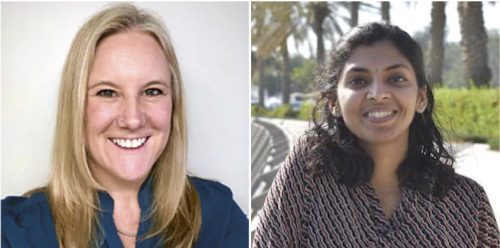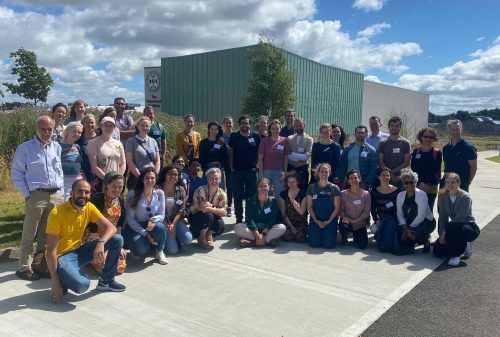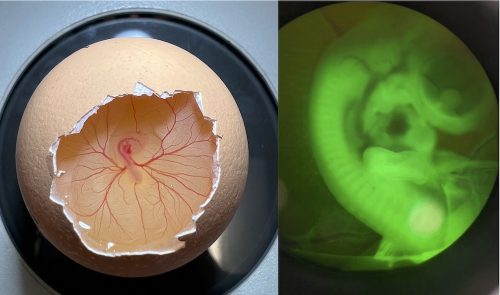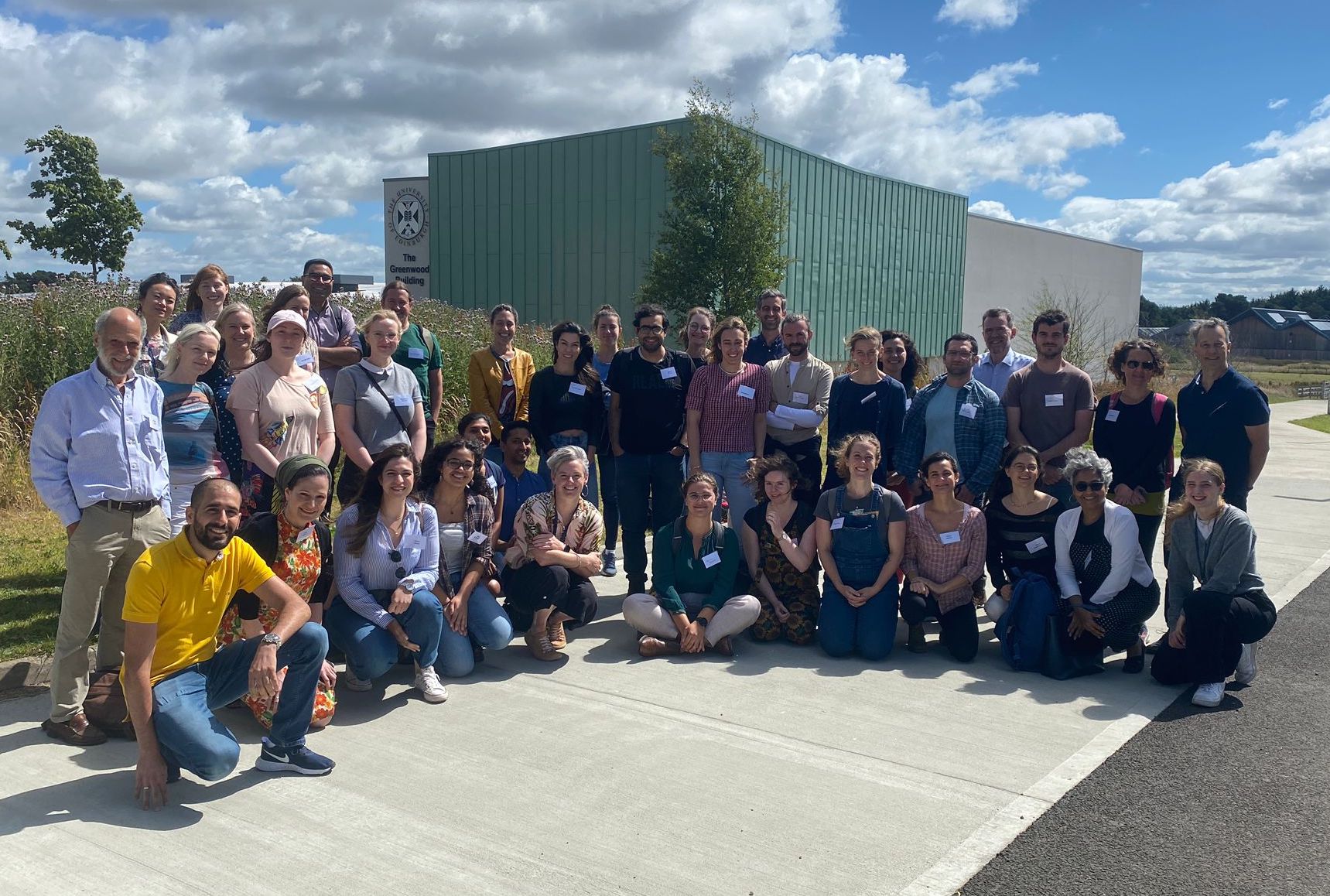Mel White, a Principal Investigator and Lakshmi Balasubramaniam, a Postdoctoral Researcher, each attendees of EGGED 2022, present accounts of their experiences on the workshop in July.

Dr Mel White is a Group Chief and ARC Future Fellow, primarily based at The College of Queensland, Australia.
As a brand new PI who began my lab in Australia in the course of the COVID-19 pandemic, I used to be very excited to attend the inaugural EGGED 2022 workshop in Edinburgh, Scotland. Hosted by the Roslin Institute, The Royal (Dick) College of Veterinary Research & The Roslin Institute’s Nationwide Avian Analysis Facility (NARF). The Edinburgh Gallus Genomics and Embryonic Growth Workshop (EGGED) introduced collectively scientists working with or desirous about utilizing the hen embryo as a analysis mannequin. By combining seminars from invited audio system and sensible hands-on demonstrations within the lab, EGGED 2022 showcased the ability and flexibility of the avian embryo.
The workshop opened with some background about NARF and the thrilling transgenic hen traces already created and in progress. For these new to the avian mannequin, there was an introduction to the hen embryo and its distinctive benefits for addressing questions of a spatiotemporal nature by famend embryologist Claudio Stern. Over 4 days, additional seminars highlighted a formidable vary of avian analysis together with teratology (Neil Vargesson), growth of the attention (Joe Rainger), limb (Julia Oh) and neural tube (Ashley Libby), neuronal differentiation (Raman Das), figuring out gene regulatory networks (Ruth Williams, Tatjana Sauka-Spengler), growth throughout scales (Ben Steventon), mechanobiology (Jérôme Gros) and up to date advances in our understanding of the hen genome (Jacqueline Smith, Hervé Acloque). Every day we additionally hung out within the Vet College educating lab watching sensible demonstrations and practising basic strategies corresponding to embryo staging, ex ovo culturing, electroporation, grafting, bead utility and organ slice tradition. Moreover, there was a full day accessible to strive personalised experiments utilizing our new expertise and the NARF transgenic traces.
The generosity of everybody concerned in EGGED was really wonderful. As organisers, Megan Davey, Lindsay Henderson and their staff labored tirelessly behind the scenes incubating hundreds of eggs, organising tools and juggling logistics for all method of experiments. A particular point out goes to the indispensable Julia Oh who introduced or demonstrated day-after-day, cheerfully sharing her information and answering limitless questions. Most of the invited audio system additionally spent hours sharing their experience within the labs and discussing science with us lengthy into the night on the social occasions afterwards. The attendees ranged from college students to PIs, with all ranges of avian expertise and it was inspiring to see the free alternate of concepts and information as individuals handed on suggestions and methods and shared their specialist expertise.
However maybe much more essential than the information we gained have been the connections we made. Because of the specific intentions of the organisers, EGGED 2022 was a collaborative workshop the place we not solely got here to be taught, but in addition to hitch as a group to form the way forward for avian analysis. Over a buffet dinner and drinks, we mentioned concepts to boost entry and utility of the mannequin and cooperation and alternate between avian researchers. After a standard Scottish send-off of boisterous Ceilidh dancing, I returned dwelling to Australia effervescent with concepts and excited to be a part of this welcoming analysis group.

Dr Lakshmi Balasubramaniam, is an EMBO Postdoctoral Fellow within the Xiong Lab, primarily based at The Gurdon Institute, College of Cambridge, UK.
Opposite to the title of this workshop, the goal wasn’t to be egged however discover the totally different strategies and construct networks amongst these utilizing avian embryo as a mannequin system to check varied organic questions starting from transgenics, developmental biologists to viral manufacturing. The EGGED workshop gathered established researchers, early profession researchers (postdocs, younger PIs), and PhD college students from various phases of their profession to debate and share their information, strategies and tricks to get experiments working from the bottom up. Experience of individuals diverse from newbies (<1 month of expertise) to those that have been working with avian embryos for a number of years. This was positively a platform to speed up one’s progress and talk about concepts with a gaggle of likeminded people the place issues have been shared over meals whereas arising with options in the course of the sensible lab periods.
This 4 day workshop, was full of networking, lab-based sensible work and talks by invited audio system. With a participation of about 40 researchers, the primary day began with an introduction to the workshop by organisers Megan Davey and Lindsay Henderson the place they launched the Roslin Institute, the transgenic facility and the house workplace rules in place to control animal work within the UK. This was adopted by a brief introduction to the staging of hen embryos and early growth of hen embryos by Claudio Stern. The afternoon was full of lab-based sensible periods the place we have been launched to varied methods of embryo isolation, staging them and figuring out the viability of embryos. This was adopted by a sensible session led by Neil Vargesson the place he gave us an introduction to using beads to coat proteins/medication in localized areas adopted by free kind lab work.
The second day began off with a chat by Mike McGrew who launched his newest method accelerating transgenic growth by rising PGC’s in-vitro. Following this we had an summary of varied early profession researchers demonstrating using transgenics in numerous contexts starting from eye growth, limb regeneration and neural tube growth. We then nosedived right into a sensible session led by Megan Davey and Julia Oh who demonstrated tissue grafting to hint tissue integration utilizing transgenic embryos. Whereas many people didn’t have embryos that survived in a single day, a handful of embryos survived in a single day tradition demonstrating the ability of this method. Following this we had a session led by Raman Das who confirmed us explant cultures enabling us to dwell picture inaccessible areas of the embryo at excessive decision. The final session of the day had Ruth Williams demonstrating in-ovo and ex-ovo electroporation as a software to genetically engineer hen embryos. Many people had the chance to check out each of those setups and get suggestions from Ruth on how they may very well be tailored to be used in our labs.

The third day began off with a chat by Ben Steventon the place he launched the position of the node, which was adopted by a free kind lab session the place we have been left to play with the strategies we learnt. In parallel we have been proven find out how to make instruments, ex-ovo imaging of hen embryos in a cup and tips about gene modifying, CRISPR assemble design, and PGC injections. This was adopted by a session on clearing strategies and an introduction to Zeiss lightsheet. The day ended with talks by Jacqueline Smith who mentioned the position of utilizing avian embryos to check viral host interplay whereas Hervé Acloque launched us to his initiatives to annotate avian genes, the FAANG initiative, Galdbase (genomics and sequencing information of avian embryos) and the VizFaDa (software to visualise sequencing datasets). Whereas the day of sensible work and talks ended there, scientific discussions continued over on the “Brainstorming Buffet” the place individuals continued to debate publishing, funding, ethics, science communication and a myriad of recent concepts in small teams that swapped across the room.
The final day of the workshop began off with on-line talks by Tatjana Sauka-Spengler who mentioned their work on producing single cell atlas throughout neurulation, and transcriptional exercise throughout neurulation and neural tube closure. This was adopted by Jérôme Gros who shared their newest work displaying gastrulation to be mediated by signalling molecules like GDF1 with suggestions from mechanics. He additionally described their efforts to develop varied transgenic quail traces which are accessible for the broader group. Earlier than persevering with our final day of sensible periods, we have been launched to HCR as a substitute for RNA hybridization. We have been walked by the totally different steps throughout HCR, with suggestions and the way one goes about ordering and designing HCR probes. We have been generously gifted with starter kits by Molecular Devices form sponsors of this workshop. The workshop ended on a excessive be aware with dinner that had us placed on our dancing sneakers to bounce to Ceilidh adopted by goodbyes on the finish of this 4 day workshop, which was full of data, suggestions and networking. To me, this was a chance to be taught the totally different strategies used to check avian embryogenesis whereas constructing a community of researchers engaged on related questions.
EGGED can be again on the 11-14th July 2023!
What individuals have been saying about #EGGED 2022


 (No Rankings But)
(No Rankings But)